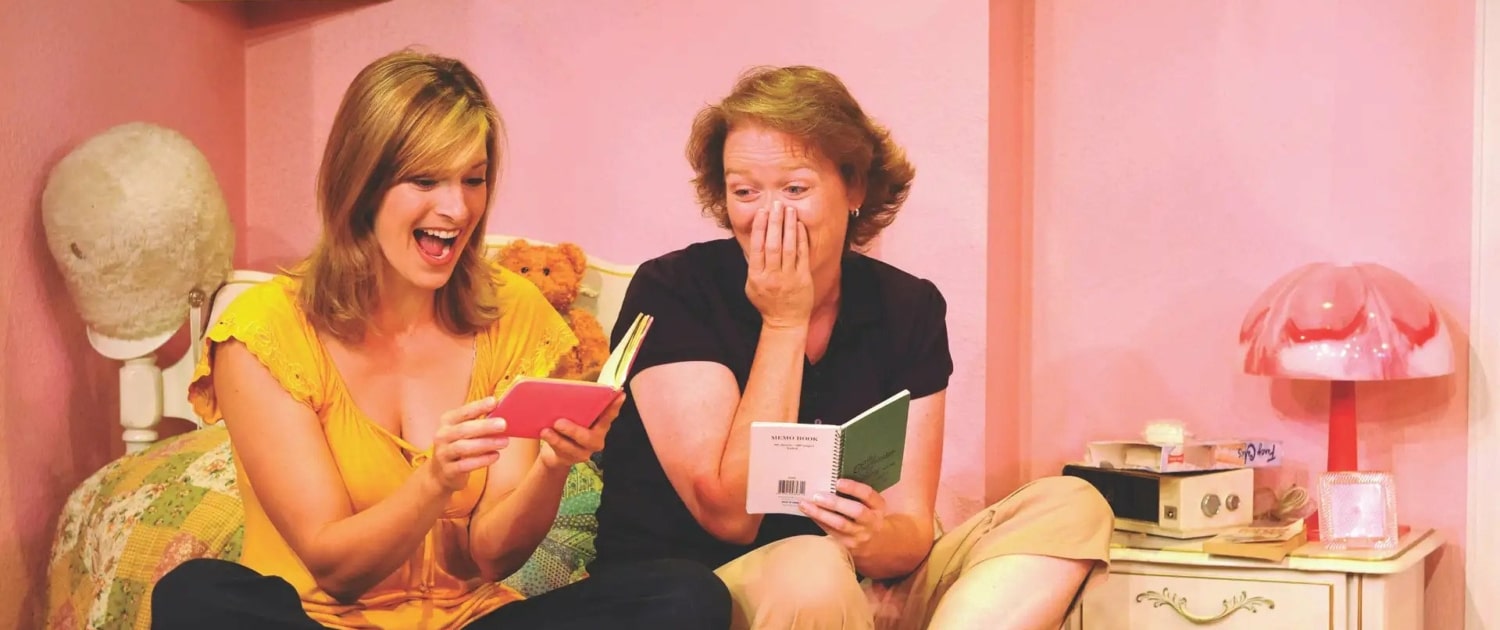DCPA NEWS CENTER
Enjoy the best stories and perspectives from the theatre world today.
Enjoy the best stories and perspectives from the theatre world today.

Linda Klein and Barbara Gehring in The Secret Comedy of Women
We all need an escape sometime, especially patients stuck in a hospital room or receiving long medical treatments. Enter a virtual reality (VR) version of the comedic cabaret created by Barbara Ghering and Linda Klein. Through a partnership with the Denver Center for Performing Arts, UCHealth patients now have the opportunity to enjoy a virtual performance of The Secret Comedy of Women.
“The virtual reality aspect of the platform allows them to escape their surroundings and enter a different world and enjoy some live theatre,” said the creators, who designed the show to be humorous and lighthearted. “It fills our hearts to be able offer a much-needed break and distraction from the stress of a hospital, while also promoting laughter and connections with some joyful entertainment.”
Turns out VR has been used in health care for decades. After reading about the benefits, the staff at UCHealth decided VR was a technology to learn more about. In 2018 UCHealth implemented a pilot program in partnership with the VR company Rendever for cancer patients receiving chemotherapy treatments. . Because these patients sometimes spend hours sitting in one spot while receiving treatment, it made sense this would be a prime time to escape.
“We wanted to see if using virtual reality as a distraction improved our patient experience and it was something our staff was excited about using. The results were overwhelmingly positive,” said Nikki Caputo, vice president of patient experience and innovation at UCHealth. “Since that pilot, we’ve been using virtual reality across UCHealth to help distract patients from painful, long, or even fear-producing treatments and procedures.”
Through the VR platform, patients can do things like escape to a place they’ve never been, experience an activity they love or have never been able to try, experience music from center stage, travel home to the house they grew up in and offer reminiscence therapy, or simply distract their minds with a fun game. Now, they can emerge themselves into a live show.
“We are so grateful to provide some much-needed laughter to patients at UCHealth,” added Ghering and Klein over email. “Laughter has many health benefits, including reducing stress and improving mood, but our show also encourages connections, which can help to create a sense of community and support among patients and staff. This can be particularly important in a hospital setting where patients may feel isolated and disconnected from others.”
So far the feedback has been positive. One patient told Caputo “This is incredible, it took me away for a minute, out of the element of this place and I didn’t think about my cancer or this place.”
Escape and entertainment aren’t the only benefits. Caputo said they have seen several key themes from patients who have successfully used VR for distraction. This includes giving patients something to look forward to; creating an atmosphere where the concept of time disappeared; altering mood and helping with anxiety; and giving patients the freedom to live extraordinary lives, even when they can’t leave their bed.
“I want to travel and do things, but I can’t with my disease,” said another patient. “Virtual reality immerses you, blocks everything else out and I felt free.”
With the success of VR in the hospital, The Secret Comedy of Women may be just the start of offering live theatre performances via a headset, something we can all applaud.
